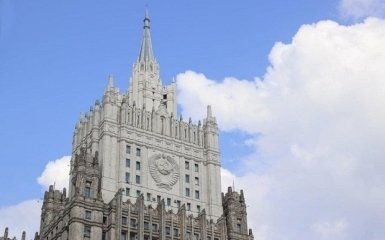Russia is expanding its official definition of extremism as part of the Kremlin's ongoing efforts to prosecute and contain domestic opposition.
Points of attention
- The Russian Federation expands the concept of extremism for criminal prosecution of the opposition.
- Changes in the anti-terrorist strategy could lead to the prosecution of anyone who criticizes the actions of the Kremlin.
- The Kremlin is intensifying its hunt for traitors, accusing Russians of treason for even minor actions.
- The policy of the Russian Federation is aimed at creating narratives that support internal nationalism and hostility towards other states.
The Kremlin legalizes the persecution of those who disagree with its policies
As noted, on July 22, the Ministry of Internal Affairs of Russia published a draft of the new Russian anti-terrorist strategy, which establishes the legal definitions of the terms "Russophobia" and "xenophobia", as well as changes the definitions of the terms "radicalism", "countering extremism" and "subjects of countering extremism".
These definitions greatly expand the Kremlin's ability to criminally prosecute anyone who opposes its policies, classifying domestic opposition under a series of vague and broad definitions.
The Kremlin is also likely to seek to use these designations and subsequent prosecutions to curry favor with Russian ultranationalists, according to ISW.
The Kremlin is likely to lean toward narratives and ideologies that promote domestic nationalism in order to create the informational conditions for its prolonged military action in Ukraine and its future hostility toward other states that the Kremlin considers "Russophobic."
Putin intensified the hunt for traitors in Russia
In Russia, after the Kremlin started a criminal war against Ukraine, the number of accusations of treason and cases of prosecution on charges of espionage increased significantly.
According to the human rights group "First Department", during 2023, more than 100 known cases of accusations of treason were recorded in Russia.
According to the representative of the human rights group, lawyer Yevhen Smirnov, there are probably about 100 similar cases that the authorities are hiding from the public.
Russians have been charged with treason — or less serious charges of "preparation for treason" — for actions such as donating money to Ukrainian charities or groups fighting on the side of Ukraine, setting fire to military commissars in Russia and even making private phone calls to friends in Ukraine with the reason for moving there.



